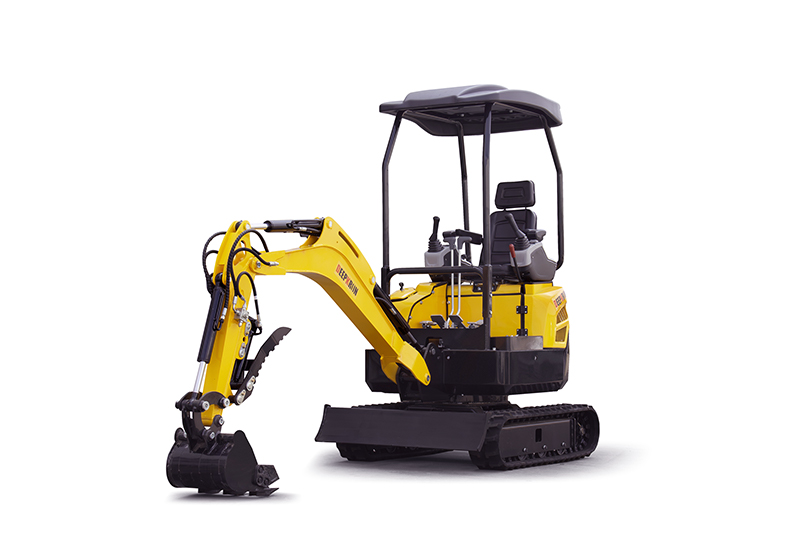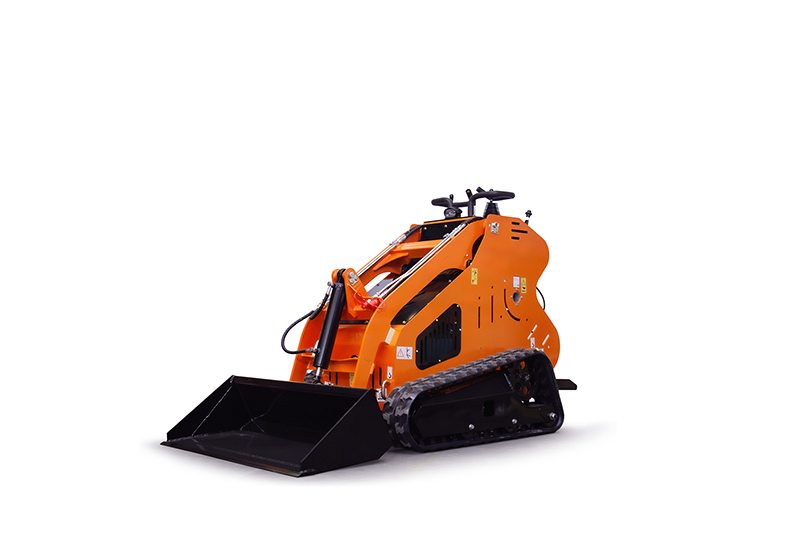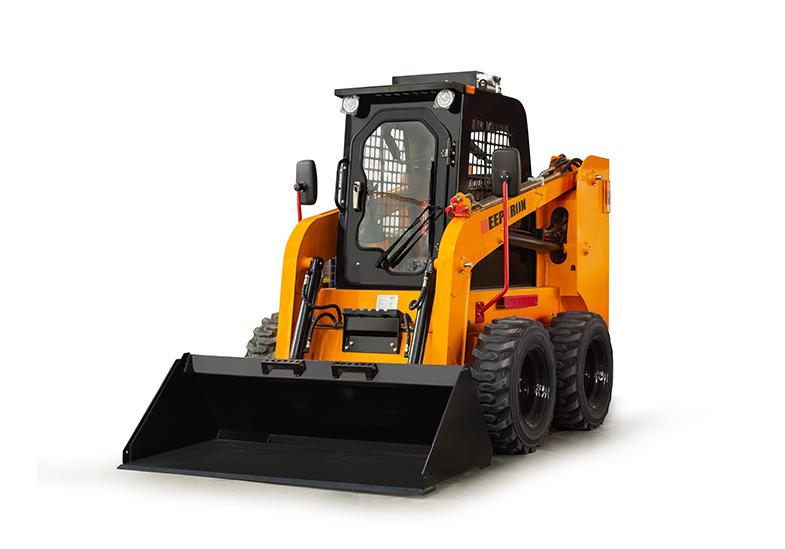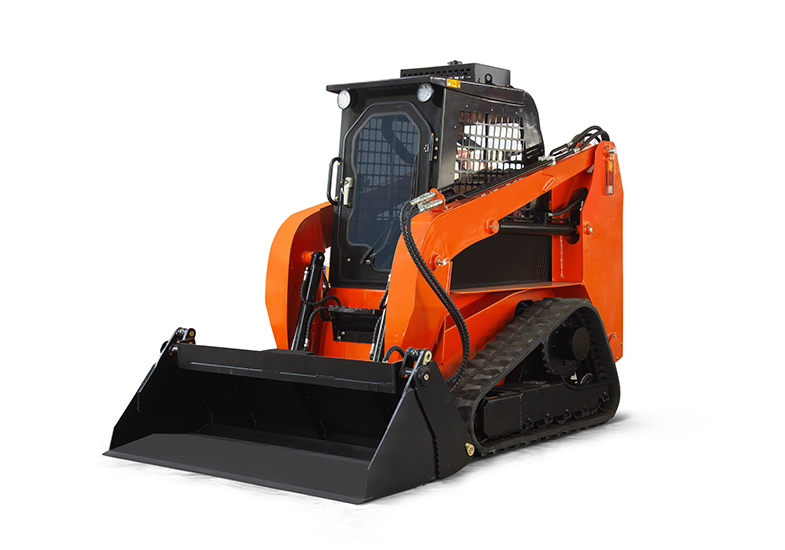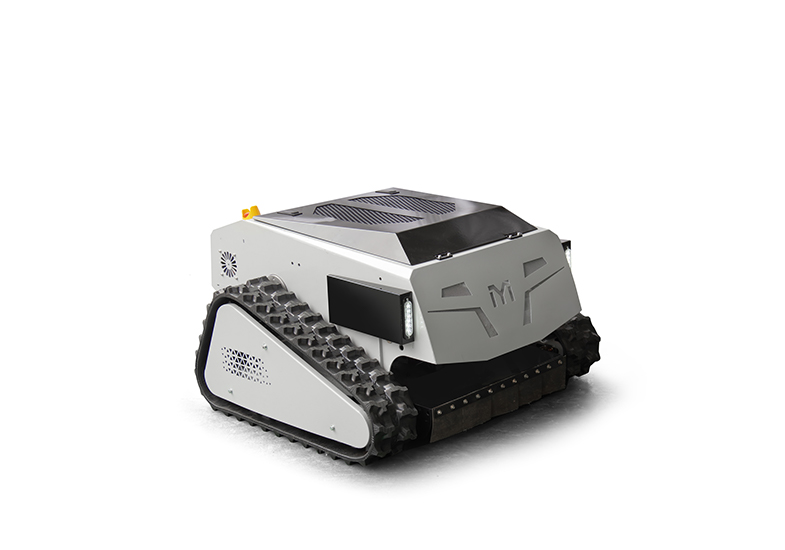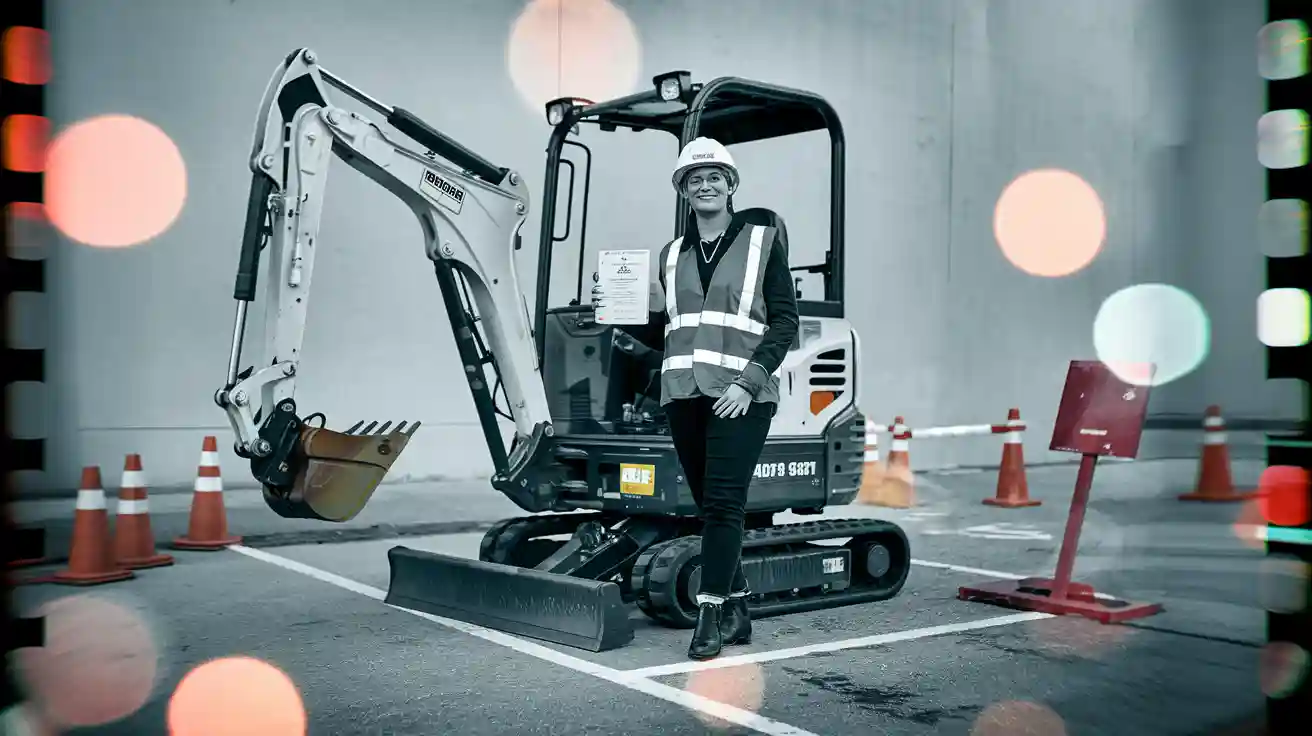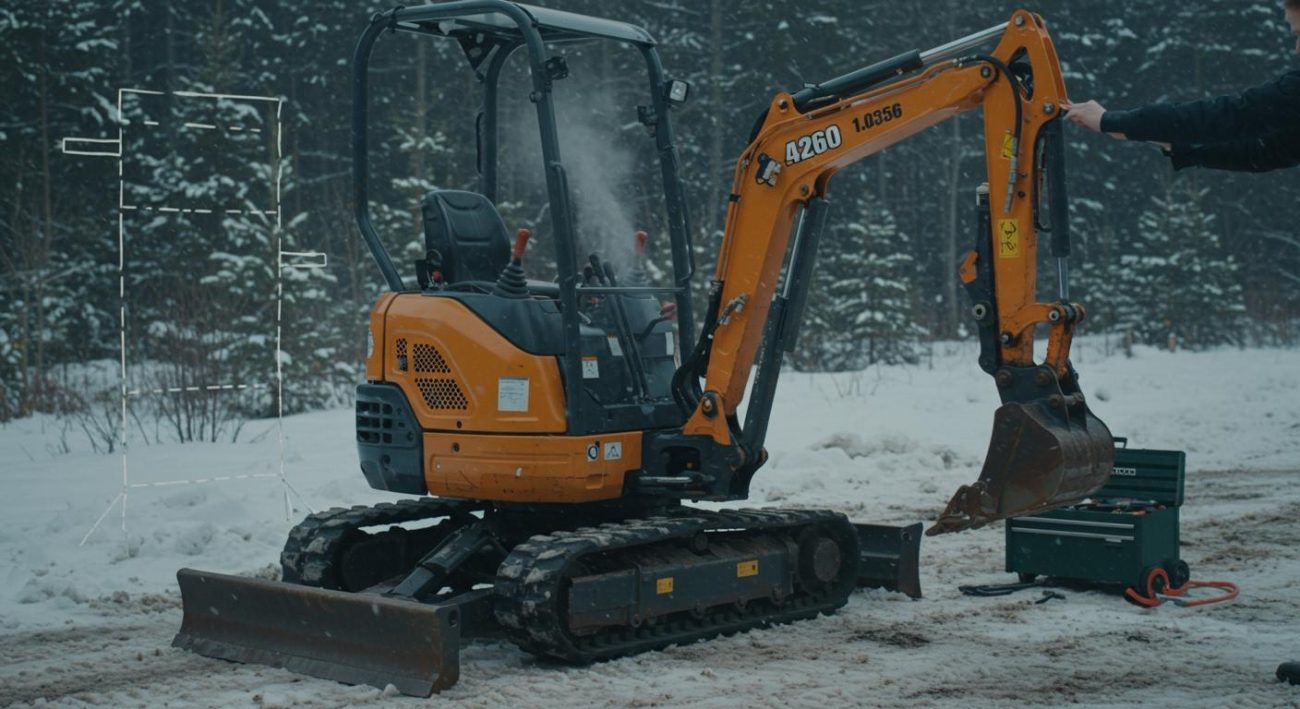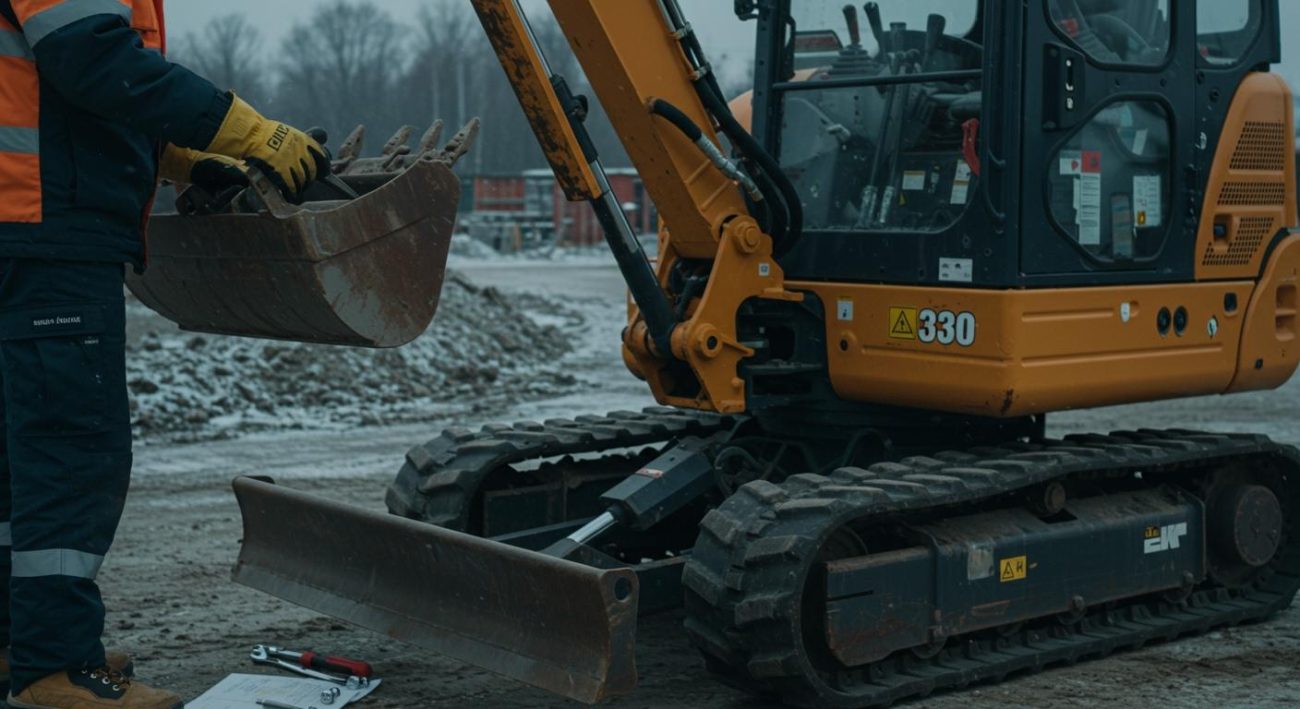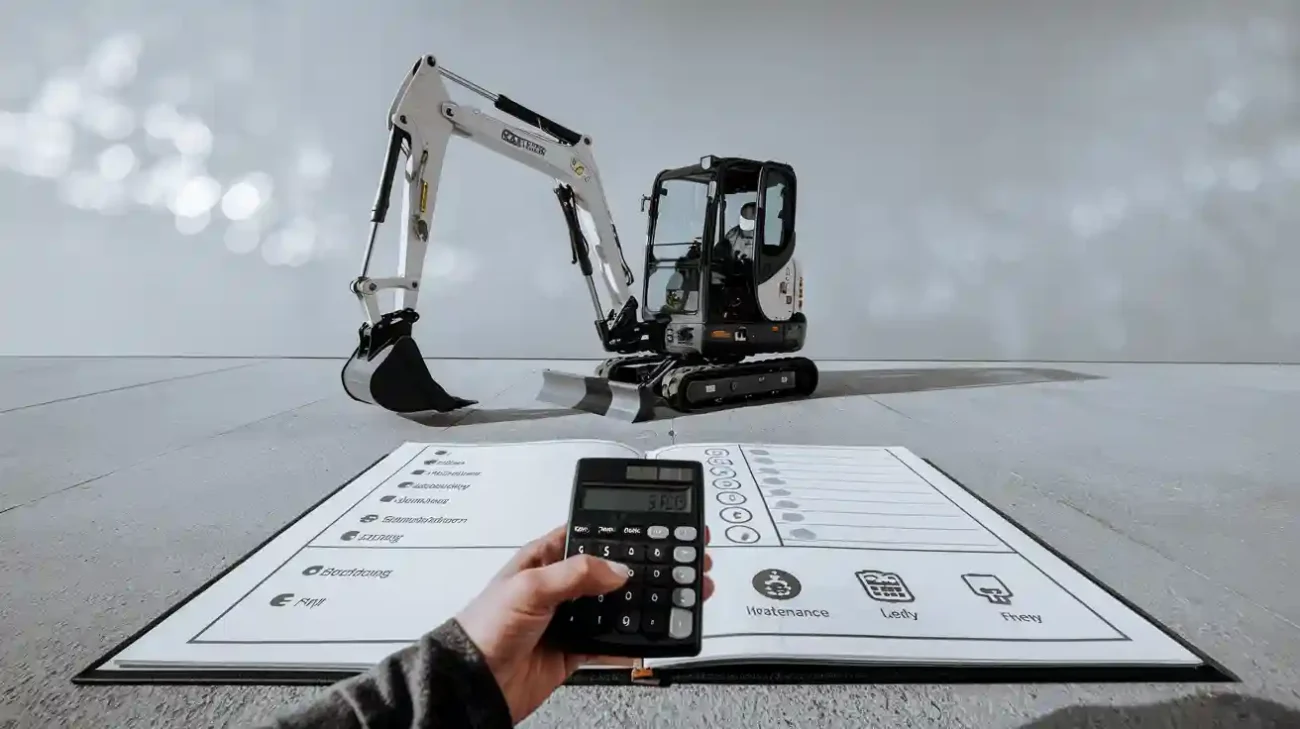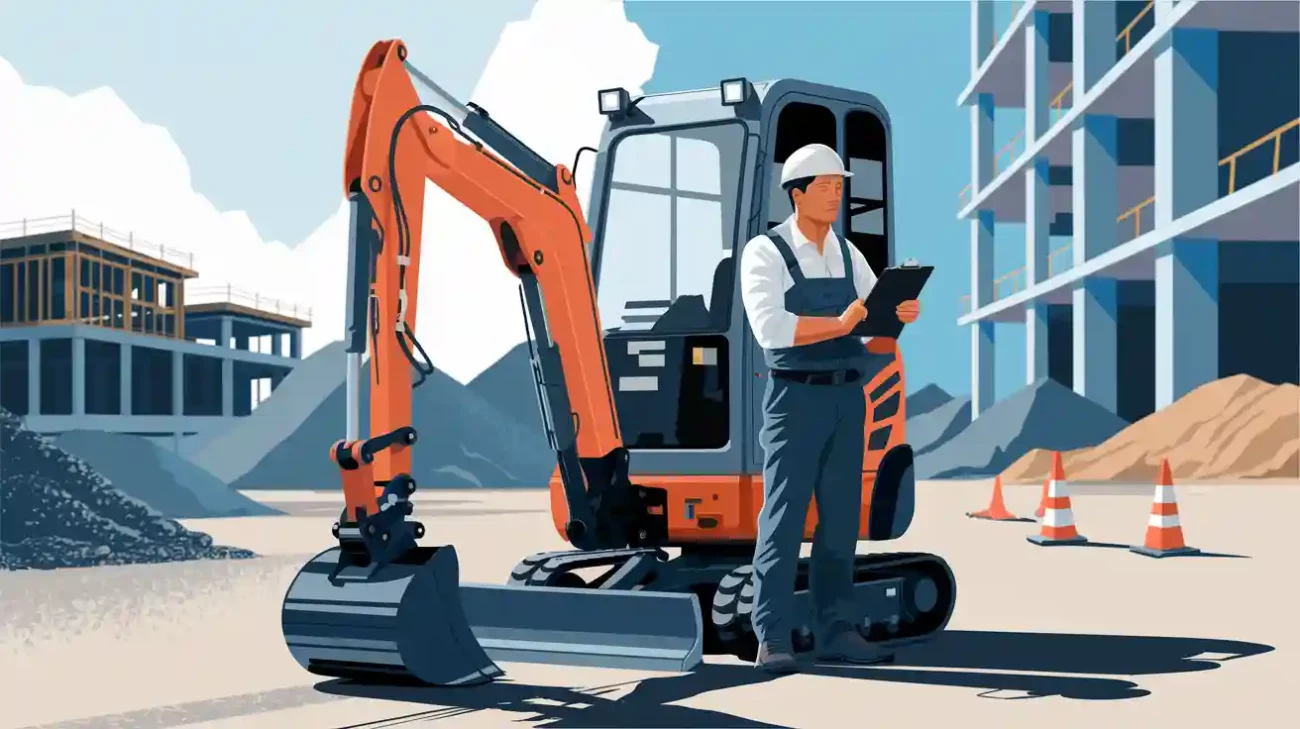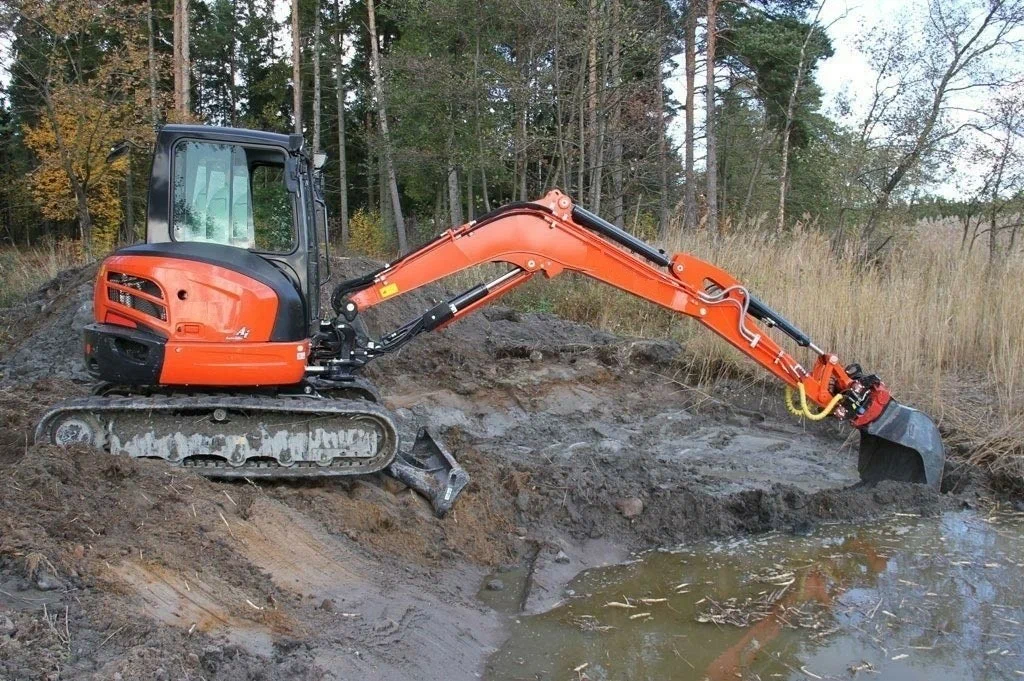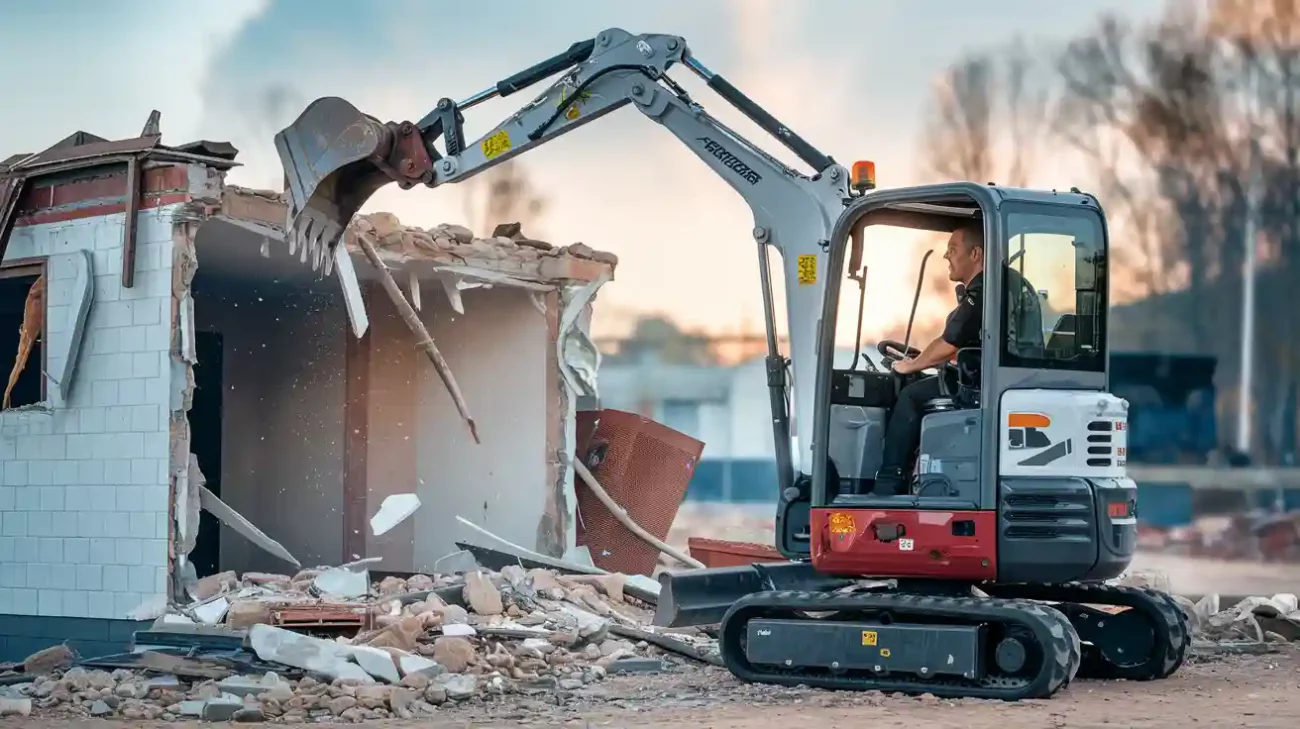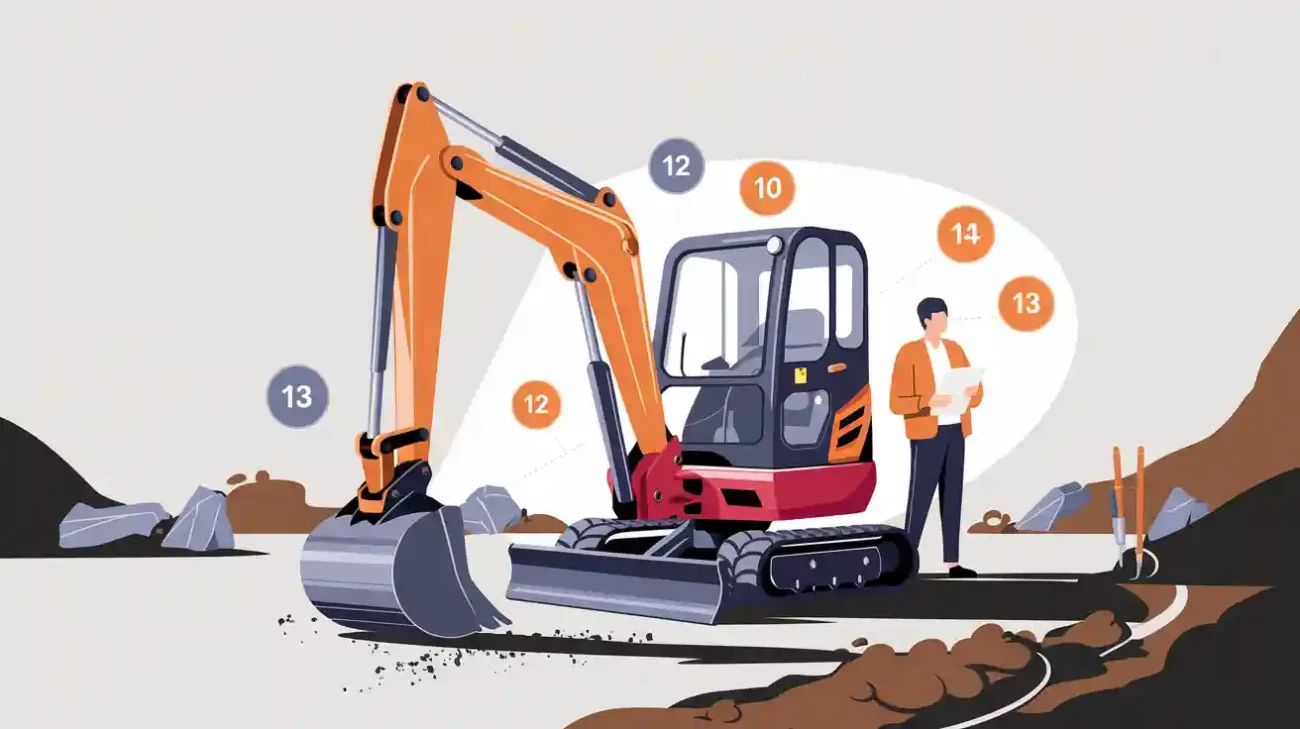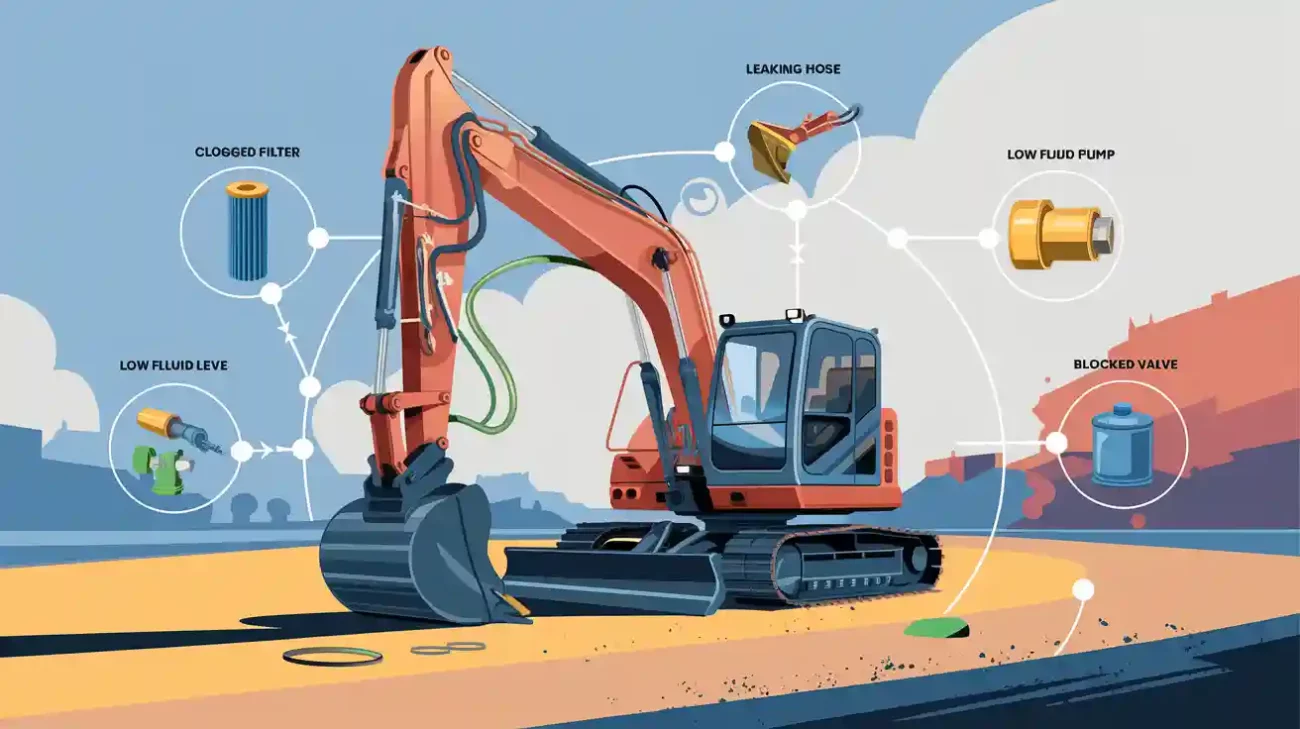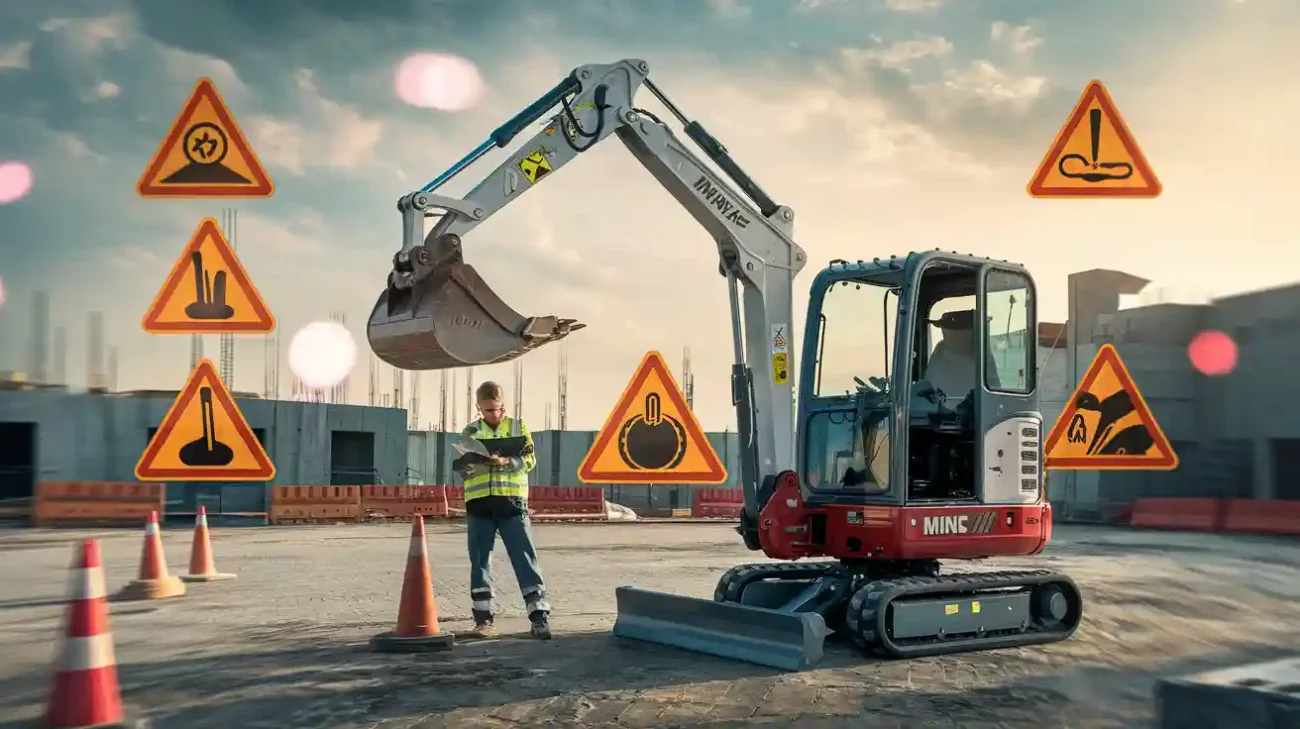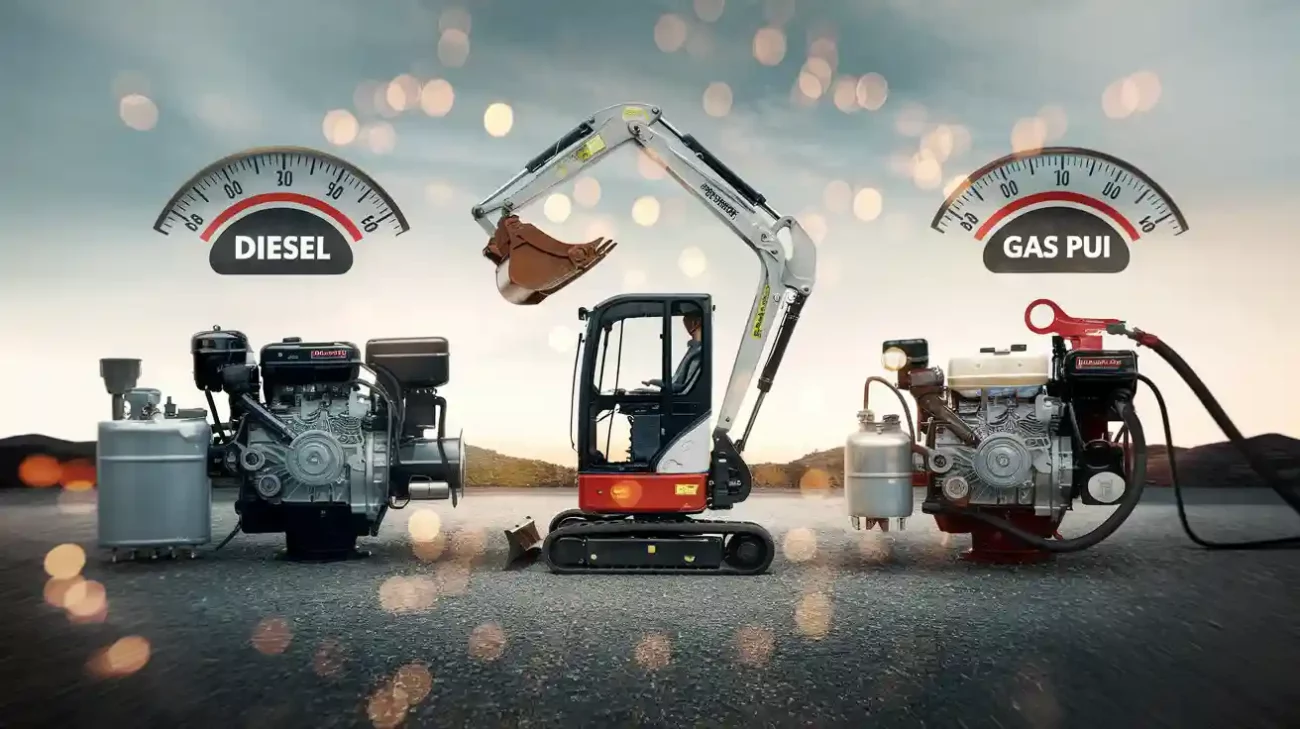You make the workplace safer when you get a mini excavator operator’s license. You also follow the law. Employers want licensed excavator operators. They know you can use the equipment safely. Many operators feel happy with their jobs. They like getting good pay and benefits. The construction industry will need about 45,700 new excavator operators each year. The average pay is $58,320 in 2024.
Aspect | Details |
|---|---|
Median Annual Wage | $58,320 |
Job Growth Projection | 4% growth from 2023 to 2033 |
Annual Job Openings | About 45,700 openings each year |
Certification Impact | Increases job prospects and wages |
DeepKron gives you good mini excavator choices. They help you as you become an excavator operator.
Key Takeaways
Having a mini excavator operator license helps keep the job site safe. It also helps you get better jobs and more pay. – Each state has different license rules. Always check your state laws before you use a mini excavator. – You need to finish a certified training program. This will teach you how to use the machine safely. You will also learn the controls and take tests to get your certificate. – Pick training schools that follow OSHA rules. They should give you lessons in a classroom and let you practice with the machine. – Make sure your certificate does not expire. Renew it every few years. Take extra classes to stay safe and keep your skills sharp.
License Requirements
Mini Excavator Regulations
You need to know the rules before you use a mini excavator. These rules keep everyone safe at work. The rules can be different in each state. Some states, like Washington, do not need a special license. Other places, like Massachusetts or New York City, have strict rules. They want you to get a special license to use a mini excavator.
Tip: Always look up your local laws before you use a mini excavator. This helps you stay out of trouble and avoid fines.
Here are some common rules for mini excavator operators:
You must be 18 or older to use an excavator at most job sites.
You usually need a valid driver’s license.
Most employers want you to finish high school or get a GED.
Many jobs ask you to finish training before you use a mini excavator.
You need to know how to use the machine safely and spot dangers.
Some countries, like Australia and Germany, need a special heavy machinery license.
Safety parts like Roll-Over Protective Structures (ROPS), seat belts, and alarms must be on the excavator.
You must follow site rules, like keeping people away from moving machines and checking for underground wires.
You must do regular safety checks and maintenance by law.
If you use a mini excavator without the right license or training, you can get in big trouble. You might pay fines, get charged with a crime, or even go to jail in some states. You may also have to pay for any damage or injuries you cause. Employers and job sites follow these rules to keep everyone safe.
Note: DeepKron makes mini excavators that follow all safety and legal rules. You can trust DeepKron to give you safe machines and help you with training.
Driver’s License and Education
Most states do not ask for a special driver’s license to use a mini excavator. But you still need a valid driver’s license to meet age and legal rules. Some states, like Massachusetts and Rhode Island, want you to have a hoisting license or a medical card. In most other states, training from your employer is enough.
Here is a table that shows license rules in different states:
State | License Required | License Type/Requirement |
|---|---|---|
Massachusetts | Yes | Class 2A Hoisting Engineer License |
Rhode Island | Yes | Hoisting license + medical card |
Connecticut | Yes | Recently added licensing requirements |
New York City | Yes | Hoisting Machine Operator license |
Most Other States | No | Employer training usually sufficient |
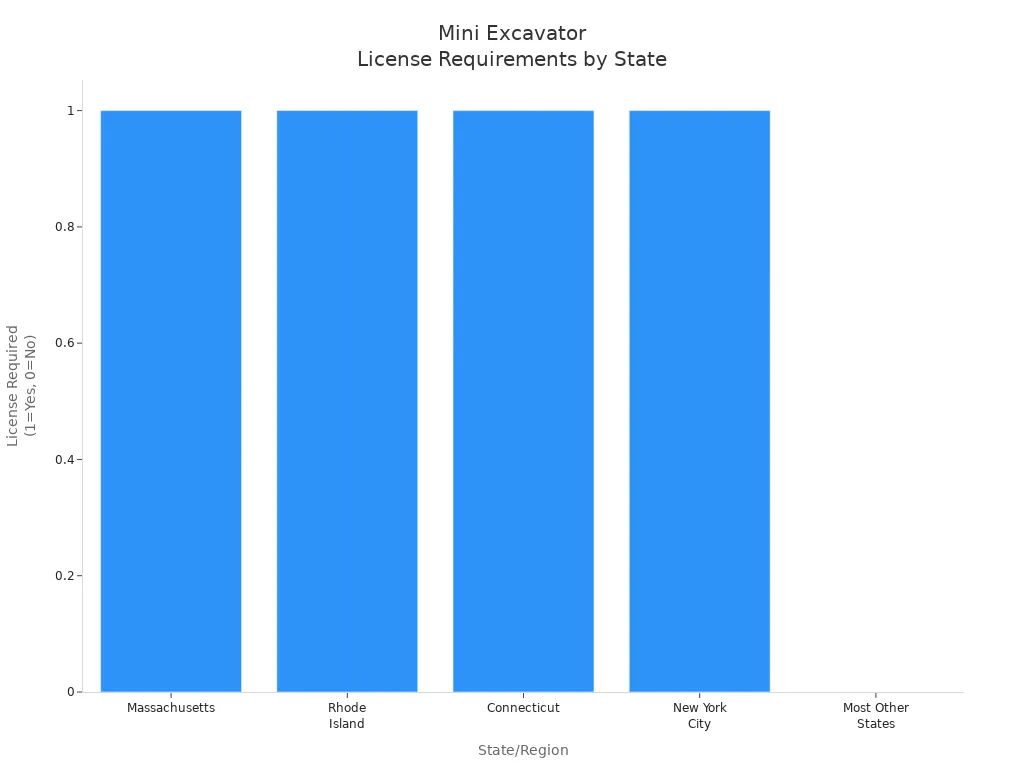
You also need to meet some education rules to be an excavator operator. Most jobs want you to finish high school or get a GED. Some jobs look for people with mechanical skills or experience. You should finish a certified training program to learn how to use an excavator safely. These programs teach you about safety, machine controls, maintenance, and how to stop accidents.
Tip: If you finish a training program and get certified, you can get better jobs and more pay as an excavator operator.
Employers like workers who have both education and hands-on training. This shows you know what licenses and certifications you need for the job. DeepKron helps you learn by giving you good mini excavators and training resources. When you pick DeepKron, you get equipment that follows all safety and legal rules.
How to Become an Excavator Operator
If you want to be an excavator operator, you need to follow steps. First, you learn the basics. Next, you practice using the machine. Last, you get your certification. This path helps you gain skills and feel ready for work. It also helps you stay safe and get a job.
Training Programs
You need special training to become an excavator operator. Training programs show you how to use an excavator. They teach you safety rules and real job tasks. You learn in a classroom and on a job site.
Here are some top training programs for heavy equipment operator jobs:
Program Name | Duration | Certification Offered | Key Features |
|---|---|---|---|
Dig This Academy Heavy Equipment Operator Ready | NCCER-aligned certificate for excavators and other equipment | Hands-on and theory lessons, job connections | |
Heavy Construction Academy (HCA) | Certification for mini excavators and 7 other machines | No prerequisites, job placement help | |
National Safety Council (NDSC) Trainer Upgrade | Varies | Trainer credential (for trainers, not operators) | Technical knowledge for training others |
Most programs want you to be 18 or older. You need a driver’s license and a high school diploma or GED. Some programs let you pay over time or help you find a job. You can also take short courses. Some are online and last 1-2 hours. Others are in-person and last about 4 hours. These short classes are good if you need to start fast or get a temporary permit.
Tip: Pick a program that fits how you learn best. Some people like hands-on practice. Others like online lessons.
Certification Process
After training, you need to get your excavator certification. This shows you know how to use an excavator safely. The certification process has a few steps.
You go to classes with lectures, videos, and activities.
You practice with real excavators and a certified instructor.
You learn about machine parts, controls, and safety devices.
You must wear safety gear like glasses, boots, and a vest.
You take a written test and a skills test.
You must go to all classes to finish the program.
The classes teach OSHA safety rules, how to spot dangers, and what to do in emergencies. You learn to use hand signals and keep the worksite safe. You also practice checking the machine before you use it. You look at fuel, hydraulics, and safety devices.
Most programs give you a wallet card when you pass. This card proves you are certified for three years. It works in many places across the country. Some programs, like GoldCast Academy UK and the National OSHA Foundation, have very high pass rates. If you do not pass the first time, you can try again.
Note: Employers want certified operators. They know you can work safely and follow the law.
DeepKron Training Support
DeepKron helps you become an excavator operator with strong support. You can pick from different training options.
Online Training: Learn at your own speed from anywhere. Employers can see your progress and set up group lessons.
DIY Training Kits: Get everything you need for training. Kits have practice tests, exams, toolbox talks, and accident stories.
Train-the-Trainer Courses: Become a trainer and teach others. Use DeepKron’s lessons and materials. This helps companies train many workers without hiring outside trainers.
Managers can ask for a custom training branch. This lets them control all safety training for their team. Every training path ends with an OSHA-style exam and a safety certificate. DeepKron’s mini excavators meet all safety and legal rules. You can use safe equipment during your training.
Callout: DeepKron helps you from your first lesson to your final certification. You get good excavators and expert help. This makes it easier to become an excavator operator.
If you want to get trained and certified, start by picking a program that fits your goals. Build your skills, pass your tests, and get your excavator certification. With DeepKron’s help, you can join the growing field of heavy equipment operator jobs and have a safe, rewarding career.
Practical Tips for Success
Choosing Training Providers
You want to start your career in the best way. Picking a good training provider is important. Choose one that follows OSHA rules. Make sure they teach in classrooms and on job sites. Good programs show you excavator parts and how to use them safely. They also talk about dangers you might face. You get a certificate when you finish the course.
Here is a table to help you compare training providers:
Criteria | What to Look For |
|---|---|
OSHA Alignment | Courses meet safety rules and local laws |
Course Content | Covers excavator anatomy, stability, and safe operation |
Training Components | Includes classroom and on-the-job training, with written and skills tests |
Certification | Gives you a recognized certificate and refresher training every three years |
Training Materials | Offers reusable and clear materials for learning |
Trainer Certification | Lets employers train their own staff |
Provider Credibility | Has experience, good reviews, and flexible formats |
Employer Responsibility | Helps employers keep records and prove operator skills |
Many top providers have taught for over 15 years. They offer online classes, DIY kits, and group lessons. You can search for “excavator training near me” to find local places.
Preparing for Exams
You need to get ready for your excavator exam. Start by joining a program with both lessons and practice. Study the rules for construction sites and safety. Go over your notes often. Practice using real excavators to get better at your skills.
Try these tips to help you prepare:
Take part in on-the-job training for practice.
Ask questions and learn from trainers or mentors.
Know the whole licensing process, like age and paperwork.
Get ready for both written and hands-on tests.
Always do formal training and review safety steps.
If you follow these steps, you will feel ready and confident for your exam.
Avoiding Common Mistakes
New operators sometimes make mistakes during training. You can avoid these if you follow a plan. Always wear safety gear like hard hats and boots. Check your work area for dangers before you start. Use all safety features, like cameras and alarms.
Follow this checklist to stay safe and build strong skills:
Join a program with both lessons and practice.
Make sure you meet all age and health rules.
Get training on machine controls and fixing problems.
Focus on safety, spotting hazards, and emergency steps.
Practice with supervision and drills.
Take refresher courses to keep your skills sharp.
Use safety devices and wear PPE every time.
Think about safety first and report any dangers.
Tip: Safety is important for everyone. When you follow these steps, you help make the worksite safer for all.
By picking good training, getting ready for exams, and avoiding mistakes, you set yourself up for success as an excavator operator.
Costs and Career Prospects
Training Fees
You need to think about the cost to become a heavy equipment operator. Training fees for excavator certification programs are different at each place. Some online courses, like Hard Hat Training, cost $79.99. This program gives you an OSHA-aligned certificate and a card you can print. Many schools and training centers let you pay in smaller amounts. You can also look for scholarships and financial help at places like Cape Fear Community College, Sampson Community College, and Northwood Technical College. These schools have scholarships such as the EWD Honeycutt Scholarship and the Promise Scholarship. Workforce help programs and grants, like WIOA, may pay for tuition, lodging, and meals. Money is limited, so you should apply early.
Tip: Ask your local training provider about scholarships and payment plans before you sign up.
Duration of Certification
When you finish your excavator certification, you get a certificate and a photo ID card. These are good for three years. OSHA rules say you must renew your certification every three years. The expiration date is on your certificate, so you know when to renew. Some states, like Massachusetts, want you to renew every two years and take more classes. Most places ask you to finish refresher courses or safety training before you renew. You may need a health check-up or pay a renewal fee.
Renewal Aspect | Details |
|---|---|
Renewal Period | |
Required Training | Some regions want you to take safety or refresher courses |
Medical Assessment | Some areas ask for a health check-up |
Refresher Courses | Needed for advanced machines or special work places |
Fees | You usually need to pay a renewal fee |
Job Opportunities
You can find many jobs as a heavy equipment operator after you get your excavator certification. Construction companies, landscaping businesses, and utility contractors need skilled operators. You may start with on-the-job training and move up to better jobs. Some operators become trainers or supervisors. The need for excavator operators keeps growing. You can work on road projects, building sites, or even on farms. Many employers give good pay and benefits. You build a steady career with chances to move up.
Note: On-the-job training helps you learn real skills and get better as an excavator operator.
You can have a good job as a licensed mini excavator operator if you follow some important steps:
Finish training and get your certification. This proves you know how to use an excavator safely.
Learn in class and practice using the machine. This helps you understand the controls and safety rules.
Pick a trusted brand like DeepKron for your excavator. This means you get strong machines and help with repairs, parts, and training.
Taking care of your excavator and using the right one helps you do your job well and stay safe.
Begin your path now with DeepKron’s trusted excavators and training help.
FAQ
Do you need a special license to operate a mini excavator?
Most states do not ask for a special license. Some places, like Massachusetts or New York City, do need one. Always check your local laws before you start working.
How long does it take to become a certified mini excavator operator?
You can finish most training in days or weeks. Some programs last 40 hours. Others take up to six weeks. You get certified after you pass your tests.
Can you take mini excavator training online?
Yes, many providers have online courses. You learn safety rules and machine basics online. You still need hands-on practice before you get certified.
What is the cost of mini excavator operator training?
Training costs are different. Online courses start at $79.99. In-person programs may cost more money. Some schools offer payment plans or scholarships. Ask your provider for more details.
Why should you choose DeepKron for your mini excavator needs?
DeepKron gives you reliable machines and strong training help. You get equipment that meets safety rules. You also get help with training and certification. Visit DeepKron’s website for more information.

